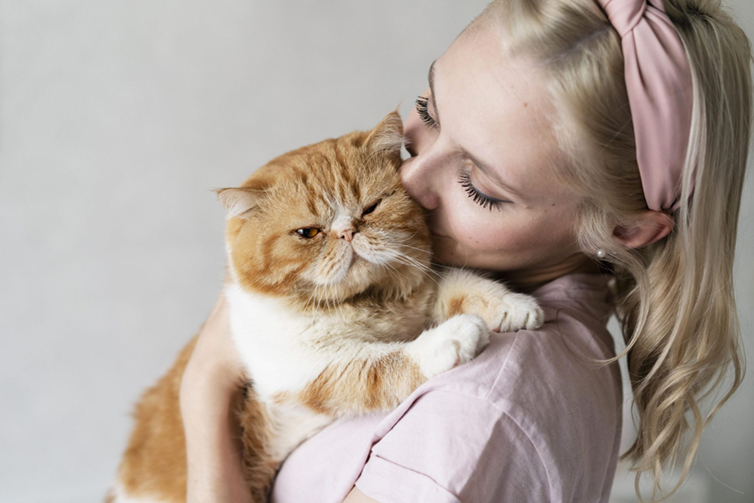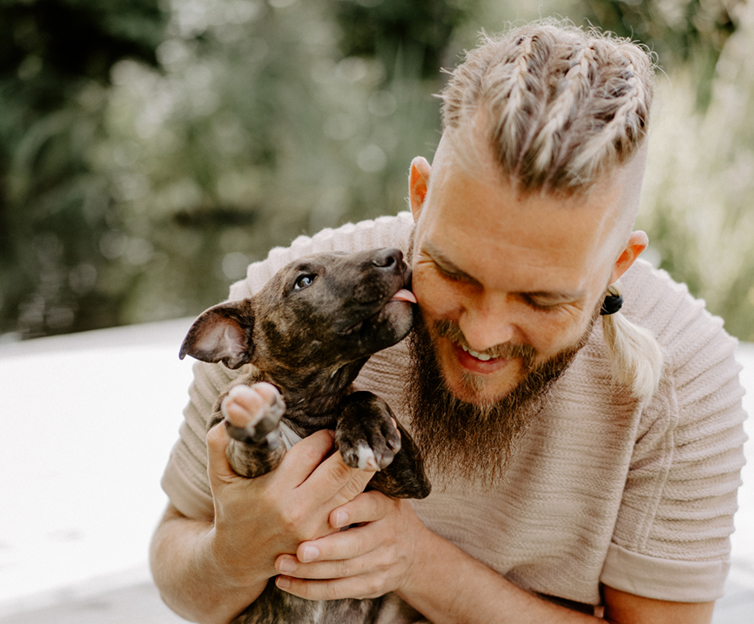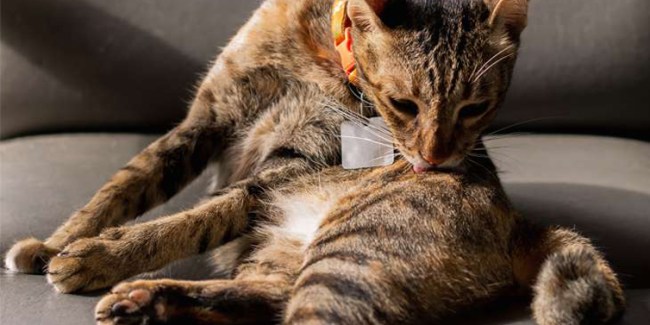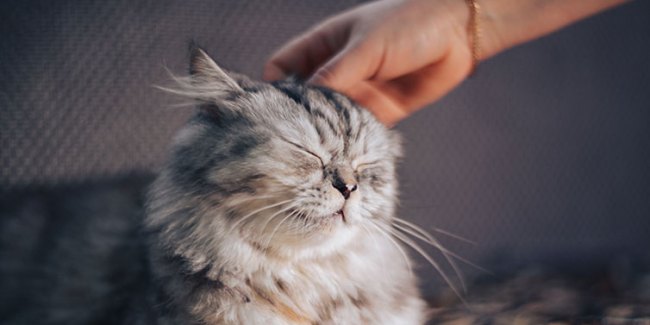Adopting a Rescue Pet
“I’ve always had two or three furry companions in my life and I’ve generally bought them from breeders. I have now been left with one lonely little pooch who needs a friend. I’ve become more aware lately of the thousands of dogs and cats in the various rescue centres in South Africa, who desperately need good homes, so I thought I’d look at the possibility of adopting one of these little orphans. However, I have some questions about this and I’d be grateful if you could possibly answer them for me.”
(Mrs. D. Alberton)

Certainly! We absolutely agree that it is heartbreaking to think of so many beautiful animals in rescue centres who need good homes. The animal shelters in our country do wonderful work and tirelessly take great pains to give the animals in their care the very best treatment they can in terms of love, food, shelter and medical support.
Since the Covid epidemic, these number of animals in shelters has gone up pretty dramatically. During the lockdowns, some people felt the need to adopt pets for companionship. Sadly, once the pandemic was largely over, some owners took their animals to rescue centres, often because they found that they could not afford the upkeep of an animal. The shelters had to cope with the influx. This has become a world-wide problem.
So, Mrs. D., it would be wonderful if more potential pet parents would consider adoption from one of our wonderful, but over-extended, rescue centres.
We’ll do our best to answer any questions you might have.
What are the benefits of adopting a rescue pet?

There are many benefits:
- When you adopt a pet from an animal shelter, you are giving a dog or a cat a home. As we have pointed out, the shelters in our country do a great job of providing abandoned, ill-treated or unwanted animals with the very best facilities they can. But there is no substitute for a permanent, loving home for these orphans. Also, when you adopt one of these animals, you are freeing up space and resources for another dog or cat. Just imagine knowing that you have greatly improved the quality of life of one of these orphan animals.
- Animals from rescue centres will usually have been spayed or snipped, vaccinated and microchipped, saving you the trouble and expense of having these procedures done by your vet.
- You will be helping to reduce the cruelty involved in mass breeding facilities. These facilities and ‘backyard breeders’, often known as puppy or kitten mills, produce many thousands of pets which are mainly sold to pet shops. The females are forced to breed repeatedly, often spending their whole lives pregnant, in cages, with little to no human contact. They are used simply as breeding machines and are often euthanized when they can no longer breed. If you adopt a shelter animal you will not be supporting this cruel practice.
- You can have the advantages of adopting an adult animal. Yes, it’s lovely to have a new puppy or kitten in your home, but you will have to deal with the ‘biting, clawing and chewing’ phase, never mind the house-training. Also, you will only be able to discover the personality of your furry baby once he/she becomes an adult. If you adopt an older pet, they will usually be house-trained and may also be able to respond to certain commands, such as ‘sit’ and ‘stay’.
- You will be able to assess the personality of your pet, in the rescue facility, before you adopt him/her. Most centres also allow you to take the pet home for a time (once the documentation and home check have been done) before you finally make up your mind. The staff will also be able to tell you if there are any health or behavioural issues with your prospective adoptee.
- You will have a large selection of breeds from which to choose. You may, for example, have always liked the look of Maltese Poodles, but when you look around the rescue facility you may fall in love with a Cocker Spaniel, as you realise that his/her personality is a better fit with your temperament and/or with the temperament of Doodles, your dog at home.
- It’s cheaper! Yes, you will have to pay an adoption fee, but this is considerably less than the cost of paying a breeder or shop. The fee includes the cost of spaying or neutering (if this has not already been done), by the centre’s vet. However, you will find that this is cheaper than having this procedure done by a private vet.
- The centre will require you to pay their fee and to read and sign various documents. They will arrange with you to come and have a look at your home to ensure that it is safe and secure for your new pet.
What sort of things do I need to consider before adopting a furry friend from a shelter?

First, you should ask yourself: Can I afford it? Yes, it’s much cheaper to adopt a pet from a shelter but not only will you have to feed your Great Dane with quality food, you may be faced in the future with vets’ bills. We suggest that you consider taking out some form of pet insurance for all your pets.
- Look at different breed types
- In the case of a dog, you need to consider the size. If you are living in a high-rise apartment, you might want to think carefully before you choose a Great Dane! Remember: dogs need regular exercise and access to places to relieve themselves.
- If you live in a pet-friendly complex, there will usually be rules about the number and size of animals you are allowed to keep. Check this carefully.
- In the case of both dogs and cats you will need to think about the temperaments and different requirements of various breeds. Some breeds will require specialized grooming, for example, which may become expensive. Some will be more sociable with both humans and other pets, than others. Some breeds of dog require more exercise than others. Some tiny, tea-cup dog breeds may require the attention of the vet more often than more robust breeds, which may be expensive. Some breeds, of both cats and dogs, shed their fur more copiously than others. Do some research online. There’s loads of information on there about the different breeds.
- Long-term rescue centre pets
In spite of the advantages of adopting an adult dog or cat, many people still want to adopt the cuddly babies. This means that many grown-up animals have had to stay in the shelters for longer periods of time. These dogs and cats make wonderful pets of course, but they may need longer rehabilitation than puppies and kittens and they may also have specific requirements, which the rescue centre staff will explain to you.
For example, they may be nervous or shy initially, requiring lots of patience on the part of their new parents. They may take longer to get to know you and your family and to feel comfortable in your home. They may have certain medical conditions which might need to be taken care of before they can go home with you. They may not get along with cats, in the case of dogs, or vice versa.
If you have chosen your future pet, do not be put off by these hiccups. They may take a bit of time to overcome, but it will certainly be worth it in the end.
- Talk to the rescue centre staff
Remember that the people who have nurtured these animals know them a great deal better than you do! Ask them about certain animals and discuss your own situation with them. They are working in an animal shelter because they love animals and the chances are that they have formed relationships, especially with those dogs and cats who have been there for a while. For example, you may particularly want a cat who is very friendly and loving. You may be looking for a dog who loves to play with children. They will be able to advise you.
- Ask permission to take a dog into an open space
The way a dog behaves in an enclosed space such as a run or cage, will usually be very different to the way he/she behaves in a more open space. You will have a chance to interact with the poochie better and get an idea of his/her personality. You may find that the doggie is fearful initially, but remember that the only security these dogs have known, sometimes for several weeks or even months, is the confined space of a cage and kennel. You should still be able to assess whether or not you and the poochie can ‘relate’ to each other. You should consider taking your family along too, to see if they can get along with their possible new family member.
Many shelters will allow you to take your chosen pet home with you, once documentation and checks have been done, for a few days before you make your final decision. This is an ideal opportunity to see if you all, including any pets at home, get along. Be careful though – children tend to become very attached very quickly!
What advice do you have about bringing my adopted cat or dog home?

Glad you asked, Mrs. D.!
The first few days in their new home are critical for a pet, especially for those from a shelter. The first thing you should do before bringing your new furry friend home is to prepare your family and your home.
Explain to your children that doggie or kitty will be scared at first and that they must treat him/her gently. Buy the essentials: bed, bedding, litter tray, crate (if you’re using one), toys, food, food and water bowls.
Prepare a safe and secure place which your new pet can retreat to. It may simply be a corner of a room or a large crate. Discourage your children from going there. It’s important that your new furry friend has a place which he/she can ‘call their own’.
New cats and dogs have different needs, so let’s look at them separately:
New Kitties
Cats can, and will, wander and once they are out in new surroundings, it may be very difficult to persuade them to come back.
- Keep your new kitty in one room for a few days in order for him/her to become accustomed to the new surroundings and to feel secure. In this time, the understandably nervous kitty will begin to get to know you and your family. Provide a litter tray with a few centimetres of gravel and of course, fresh water. This needs to be cleaned out regularly.
- Provide a cozy bed and blankets so that he/she feels safe and secure.
- Explain to your children that kitty is not used to the house or to them, so they can ‘visit’ him/her but they must be very gentle and quiet at first.
- If you have other animals, introduce them slowly and quietly after a couple of days.
- Once kitty is ‘out of quarantine’, let him/her wander around the house for a couple of days before he/she ventures outside.
- Cats love to ‘hide’, so provide your kitty with a carrier or even a few cardboard boxes around the house.
- The staff at the rescue centre will have told you about the food that kitty has been used to. Don’t try to change this food for at least a few weeks – you don’t want to stress him/her out unnecessarily. Then introduce any new food gradually.
- Introduce kitty to your vet and take him/her for regular check-ups.
New Doggies
- Be prepared for ‘toilet accidents’! Above all, do not shout or scold. You will never teach an animal that way and you will simply frighten your new friend. Gently take him/her to the area where he/her can pee and poop and praise, praise, praise when he/she performs.
- Remember that some of these special pooches may have been ill-treated in a previous home. Please bear this in mind when his behaviour may, at first, be unacceptable to you, and guide him/her gently. It may take some weeks before your new friend’s real personality shines through.
- Set up a routine from day one: feeding, exercise, playing and sleeping times should remain the same, if possible.
- Don’t leave a child with him/her at first until you are sure that doggie and child are comfortable with each other. Do not allow ‘rough’ play, at least for the first few weeks.
- Remember that you can always phone the shelter if you have any problems. They will be only too happy to help you.
- Introduce your doggie to your vet and take him/her for regular check-ups.
And finally…
What a wonderful feeling it will be for you when you adopt one of these special furry friends! Not only will you have provided a wonderful animal with a loving home, but you and your family will reap the benefits of your adopted doggo or kitty for many years to come.
So, look online for the rescue centres in your area and contact them to arrange a visit. You will never be sorry!
ZA-NON-221100011
Subscribe to our Newsletter
Get to know your furry friend better! Sign up for all things dog- or cat-related.
The Hairy Facts about the dreaded hairball
12 April 2021
Help! My dog’s barking mad! Volume 2
12 April 2021
Your Itchy, Scratchy Cat – All About Cat Skin Problems
12 April 2021
The Dog’s Diet: A Bone of contention?
01 April 2021
Mango Fly Worms: How to Spot and Eliminate them
Posted on November 28,2019
Managing Mange And Mites In Your Dog
Posted on June 11,2018
Why Do Cats Purr and How? Learn What Your Cat Is Saying
Posted on October 14,2020
How to Get Rid of Ear Mites in Dogs
Posted on November 06,2019









